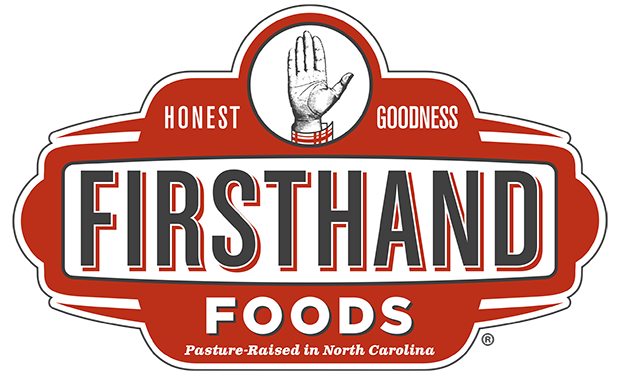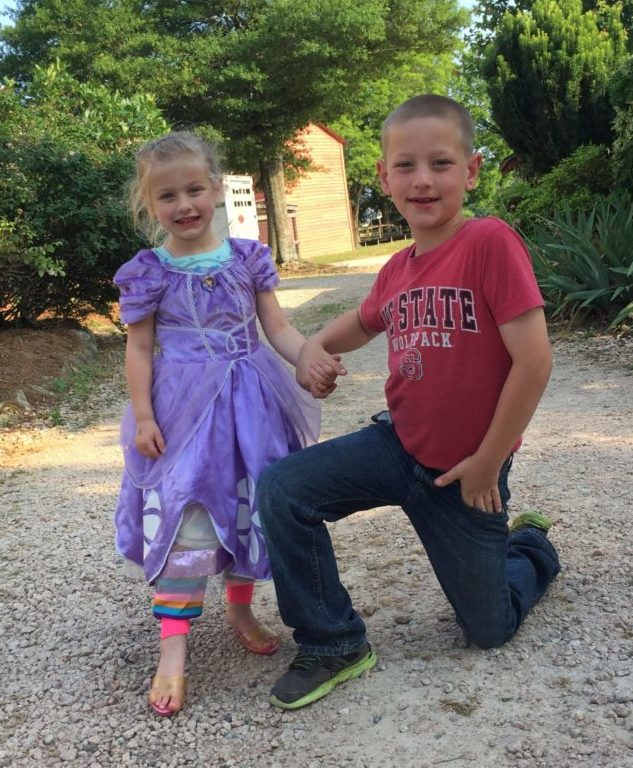This has certainly been an interesting year to be in the meat business. The headlines against meat and its climate impacts have been constant. Friends and family are moving toward vegetarian or vegan diets to take action against global warming. Billions are being invested in plant-based proteins and meat alternatives. And conversations about our food choices are becoming increasingly polarized.
We intimately understand the need to overhaul the way we produce meat in this country. That is what inspired us to start Firsthand Foods! The massive scale and industrial approach to livestock production results in real and urgent problems, including climate change. As we are now aware, beef and dairy cows burp methane, a greenhouse gas; the Food Climate Research Network estimates that 14 percent of total greenhouse gas emissions come from livestock and, of that, 65 percent come from beef cattle and dairy cows.
Nonetheless we’re convinced that vilifying one type of food over another isn’t helpful. In fact, it just fuels divisions and keeps us from coming together to develop solutions. Let’s face it, ALL of our food choices – not just those about meat or no meat – have profound environmental and social impacts. If we look in our own kitchens, we see numerous examples of questionable sustainability. Almond milk shipped in from California? Monocropped cereal grains? Water-guzzling avocadoes? If we look closely, agriculture’s impacts are everywhere.
The truth is, there are no quick fixes or simple solutions. There is no single food we can cut that will magically reduce our carbon footprint or increase biodiversity. But we can move beyond headlines, grapple with the complexities of our food choices, and look for opportunities to support ecological approaches to food production, whether that be with how we eat or how we vote.
We believe pasture-raised meats can play a crucial role in cooling a warming world. Beef cattle (as well as dairy cows and sheep) are ruminant animals that when grazed strategically on pasture, mimic the ecological relationship that once existed between buffalo and prairie grasslands thousands of years ago. By switching from feedlot to pasture-based production systems that practice intensive or adaptive grazing, we can use beef cattle and other ruminants to build soil biodiversity and sequester carbon, and more than make up for the methane cows produce.
It’s this type of agro-ecological practice that inspired us to start Firsthand Foods and support the livelihood of pasture-based livestock producers across our state. We recently visited one such supplier, Circle D Beef in China Grove, North Carolina owned and operated by Eric and his father, Oscho Deal. The farm was established in 1842 and Eric is the 6th generation to work the land. Today they specialize in raising beef cattle and sheep using adaptive grazing management. Walking their pastures, observing the animals grazing in their natural habitat, is a powerful tonic to rekindle our faith that humans can produce food in ways that nurture and sustain the land.
Guy Deal, age 8, explains how he likes to help out on the weekends or after school, moving cattle between pastures. He’s fully versed in the science and understands the importance of keeping a close eye on pastures to make sure the cattle don’t over-graze, which makes it hard for the forage to recover, or under-graze, which encourages weed growth. Guy is learning to become a “grass farmer,” observing what’s happening at his feet as much or more than what’s happening with the animals.
It’s hard not to want to bring everyone, especially our vegetarian friends, out to the Deal’s place. Not because we want to try and convince them to eat meat (although it’s tempting). We understand that dietary choices are very personal. But they are also influenced by family history, geography, and cultural norms. How much of the “meat is bad” trend is fueled by the fact that so many of us are multiple generations removed from farming? We have ready access to daily doses of bad news on our phones but dwindling access to the outdoors, to an appreciation of the cycles of life and death, or to an understanding of the regenerative role that farm animals can play in sustaining us and our soils.
So this holiday season, we are staying focused on the hope that we feel seeing a new generation of grass farmers take root. We are looking forward to a new year and the opportunity to continue growing Firsthand Foods. Thank you for directing your food dollars in support of our innovative network of livestock producers and supply chain partners who are developing solutions to a warming world.

